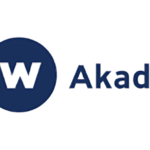Source: BusinessDay NG
The National Association of Chambers of Commerce, Industry, Mines, and Agriculture (NACCIMA) has appealed to President Bola Tinubu’s administration to prioritize significant tax reforms, including reducing corporate tax rates to 19% and maintaining the Value Added Tax (VAT) rate at 7.5%.
In a statement signed by its National President, Dele Kelvin Oye, NACCIMA expressed confidence that these measures would stimulate economic development and enhance government revenue. Oye also stressed the necessity of ensuring that taxpayers do not remit less than the taxes paid in the previous year, describing this as a critical safeguard to protect government earnings.
Currently, the proposed Tax Reform Bills before the National Assembly outline plans to incrementally increase VAT rates, starting at 10% in 2025, rising to 12.5% between 2026 and 2029, and further climbing to 15% from 2030. However, NACCIMA has recommended a more sustainable approach by capping VAT at 7.5%.
Oye also highlighted the persistent misalignment between federal and state governments on revenue sharing, which often spills into the public domain through media altercations. He noted that these disputes are centered on securing larger portions of taxpayer funds rather than addressing the concerns of the public and the taxpayers themselves.
“The ongoing media clashes between federal and state governments only underscore the lack of alignment between them,” Oye said, urging for constructive dialogue that prioritizes public interest.
The statement further emphasized the need for reforms in other critical sectors, such as telecommunications, which contribute significantly to national revenue. Oye pointed out that without targeted interventions in these sectors, opportunities for additional growth and increased tax collection would remain unrealized.
Additionally, NACCIMA called for greater private sector involvement in the tax reform process. It urged the government to engage key stakeholders in industries such as aviation, telecommunications, manufacturing, and Free Trade Zone operations in meaningful discussions. Oye criticized the current approach, where committees merely “lecture taxpayers,” as ineffective in achieving desired outcomes.
NACCIMA proposed that the results of tax reform deliberations should be submitted to the National Assembly via the Office of the Attorney General, as directed by the President, to enhance coordination and ensure efficient implementation of policies.
The proposed 2024 Tax Reform Bills stem from recommendations made by the Presidential Committee on Tax Reform, chaired by fiscal policy expert Taiwo Oyedele. The bills include the Nigeria Tax Bill (NTB), the Nigeria Tax Administration Bill (NTAB), the Nigeria Revenue Service Establishment Bill (NRSEB), and the Joint Revenue Board Establishment Bill (JRBEB).
In its appeal, NACCIMA underscored the importance of adopting a balanced and inclusive approach to taxation that promotes economic growth while ensuring the sustainability of government revenue in the long term.







